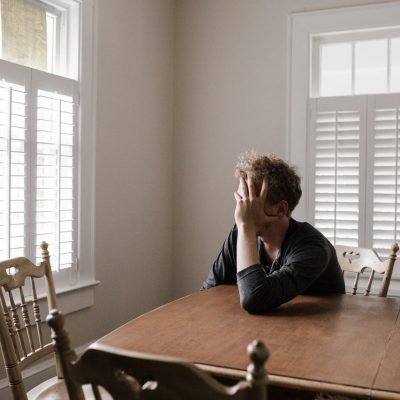Stress about finances, from an illness, in personal relationships, or at work, can trigger anxiety. Public speaking, meeting new people, talking to authority figures, and other circumstances can also produce anxious feelings. In fact, even living in a cluttered and messy house can trigger those feelings. However, anxiety can also be triggered by more unexpected sources. Let’s take a look at some surprising causes of anxiety and find out how you can cope.
Nutritional Gaps
Mental and physical health are closely connected. If you are lacking certain nutrients, it could lead to or exacerbate anxiety, depression, and other mental health disorders. For nutritional deficiencies, it’s important to stick to a healthy diet and consider taking a multivitamin. Multivitamins can provide the recommended daily allowance of vitamins and minerals you need, and also have a positive impact on your anxiety and mood.
Magnesium
Magnesium helps convert food into energy, regulates your nervous system, promotes normal blood pressure, and conducts other important functions in the body. However, many people are magnesium deficient, perhaps because they don’t consume enough whole grains and leafy greens. Low magnesium can lead to fatigue, muscle spasms, abnormal heart rate, and other health problems. Magnesium deficiency is also linked to anxiety. Research indicates that magnesium supplements can help relieve anxiety and reduce the body’s response to stress.
Vitamin D
Vitamin D is an essential nutrient that helps your body build and maintain strong bones. Research has shown a link between vitamin D deficiency and depression, and recent studies have uncovered a possible link to anxiety as well. To boost your vitamin D intake, spend more time in the sunlight, consume fatty fish, and eat fortified foods such as orange juice, ready-to-eat cereals, and some types of yoghurt. Multivitamins also can boost your vitamin D levels.
B Complex vitamins
B vitamins affect mood and metabolism, and thus a lack of them can trigger anxiety. For example, vitamin B1 helps balance blood glucose levels, which are a significant factor in anxiety. Vitamin B3 assists in the synthesis of serotonin, which combats anxiety, and other B vitamins also have a connection to stress and anxiety as well.
Medications
Medications can produce a variety of side effects, including anxiety symptoms and full-on anxiety attacks. According to Everyday Health, prescription drugs for thyroid conditions and asthma, as well as over-the-counter cold medicines and weight loss supplements can cause anxiety. If your medications cause such side effects, talk to your doctor about alternative drugs.
Dehydration
Dehydration makes your blood pressure decrease and your heart rate increase. You may also start to feel lightheaded, weak, or confused. If you don’t normally have anxiety, you might recognize right away that you are just dehydrated and have a glass of water. However, if you have anxiety issues, these feelings can trigger a chain reaction of anxiousness that can turn into a panic attack. To avoid such a situation, drink fluids consistently throughout the day, even more so when you are exercising or when it’s hot and humid outside.
Alcohol and Caffeine Consumption
You might think that having a drink or two can lower your anxiety levels and steady your nerves, and that might be true — temporarily. However, within a few hours of consumption, alcohol can change levels of serotonin and other neurotransmitters in the brain, which actually worsens anxiety. Alcohol can also cause low blood sugar, dehydration, and increased heart rate. All of these things combined can lead to anxiety and panic attacks.
Alcohol isn’t the only substance that can affect anxiousness. You probably know that caffeine can cause your heart to race, but it can also trigger anxiety attacks and lead to a full-fledged anxiety disorder. Caffeine consumption increases irritability, restlessness, and insomnia, mimicking anxiety symptoms and often snowballing into a panic attack. If you suffer from anxiety issues, avoid alcohol and caffeine consumption to see if it helps relieve some of your symptoms.
If you are dealing with anxiety, try to avoid the common triggers as well as some of the more unexpected sources. Though you may not be able to avoid episodes of anxiety altogether, you can reduce the frequency of attacks and improve your overall quality of life.
Photo via Pexels









Leave a Reply